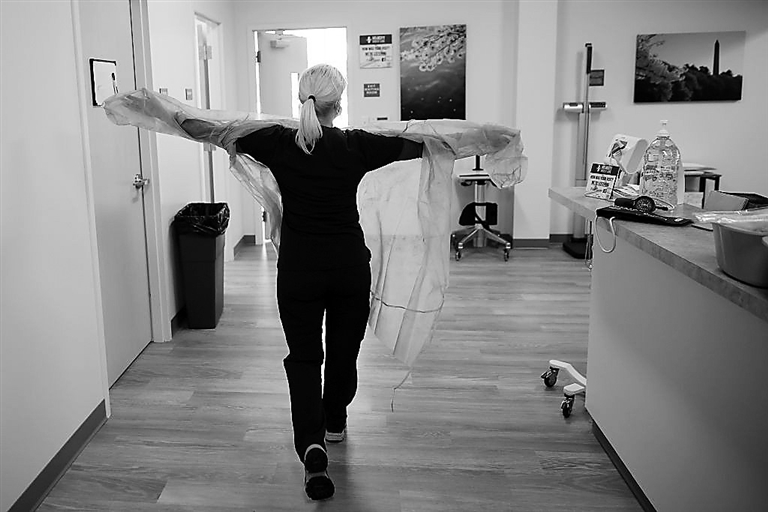
SCIENTISTS have learned a ton about COVID-19 in record time, but there are still a lot of uncertainties about the novel coronavirus and the disease it causes. One of those mysteries is “long-haul COVID.” People get COVID-19, recover, then experience lingering symptoms for months. A new study published this month in The Lancet found that 76 percent of people who had been hospitalized for COVID-19 still had at least one symptom 6 months after recovering. In general, the more sick a person was with COVID-19, the greater their risk of experiencing persistent symptoms months later. But even mild cases have been linked to lasting painful symptoms. “The biggest takeaway is that the susceptibility to persistent symptoms in COVID-19 is unpredictable, not necessarily dictated by how severe symptoms were during acute COVID-19, or other typical risk factors such as age or other comorbid conditions,” said Dr. Serena Spudich, a Yale Medicine neurologist. The study looked at 1,733 people diagnosed with COVID-19 in Wuhan, China, and tracked their recovery from June to September. The researchers found that 76 percent of 1,655 study participants at follow-up were still experiencing symptoms 6 months after recovering. Those symptoms were most commonly fatigue and muscle weakness, which 63 percent of them reported. Many others experienced anxiety, depression, pain and sleep difficulties. Those who had severe COVID-19 were more likely to experience lingering respiratory issues, which the researchers suspect may be due to lung damage. Some participants went on to experience kidney issues. Nearly 13 percent of participants who developed kidney problems at follow-up had normal kidney function while in the hospital for COVID-19. Dr. Teresa Murray Amato, the chair of emergency medicine at Long Island Jewish Forest Hills in New York City, said the study confirms her hospital’s anecdotal experiences with the lingering health effects of COVID-19. Amato noted that fatigue and muscle pain are the two most common long-haul symptoms her team has seen. Many also experience neurological issues. “These include a fairly wide variety of symptoms, including problems with memory and concentration, unremitting headaches, abnormal sensations on the skin, prolonged loss of smell and taste, and difficult symptoms of new or worsened anxiety and depression,” said Spudich. The researchers suspect a mix of factors could be causing these lingering symptoms, including lasting issues from the initial infection, an overactive immune response, corticosteroid therapy, a stay in the intensive care unit, social isolation, and stigma associated with the disease. Spudich said that inflammation might persist after the infection clears. Some scientists suspect the immune system may continue to fight the infection even after it clears, further damaging organs. “More research is needed to better understand the causes, length of symptoms, and any intervention that may help,” Amato said. (SD-Agencies) | 
